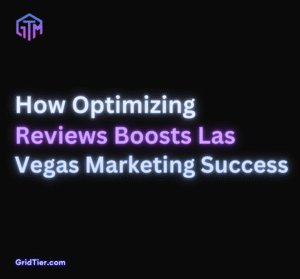
Unlock Local SEO Success With Smart Keyword Research Strategies for Business Growth
Local SEO keyword research identifies the specific search terms potential customers use in your area, empowering small and medium businesses to rank prominently in local searches. By analyzing location-based modifiers and search intent, this process drives targeted traffic and increases footfall or inquiries within 24 hours of a mobile search. In this guide, you will learn foundational definitions of local SEO keyword research, methods to uncover hyperlocal terms, the top tools for 2024, Google Business Profile integration tactics, semantic SEO and structured data enhancements, performance measurement frameworks, and future-proof strategies involving AI and voice search. These actionable strategies illustrate how Gridtier’s expert services amplify local visibility, convert leads, and foster measurable business growth.
What Is Local SEO Keyword Research and Why Is It Essential?
Local SEO keyword research is the practice of discovering and prioritizing location-specific search terms to align web content and Google Business Profile listings with on-the-ground customer queries. By mapping city, neighborhood, and “near me” modifiers to service offerings, businesses improve relevance signals that drive local pack rankings. Local SEO improves foot traffic, phone calls, and online bookings by ensuring your site appears for the exact phrases prospects use when ready to engage.
To illustrate the essential benefits of this approach, consider the following key advantages:
- Enhanced Local Visibility: Aligning keywords with geographic intent boosts presence in local packs and maps.
- Targeted Lead Generation: Location-based queries yield higher conversion rates as searchers intend to purchase or visit.
- Optimized Budget Allocation: Focusing on hyperlocal terms reduces competition and lowers cost-per-click in paid campaigns.
These benefits pave the way for understanding how local SEO diverges from broader optimization practices and why deep keyword insights matter for business growth.
How Does Local SEO Differ From General SEO?
Local SEO focuses on geographic relevance, whereas general SEO addresses broad keyword competition without location constraints. Local SEO leverages signals such as local citations, and region-specific content to improve rankings within defined service areas.
- Ranking Signals → Local Pack prominence vs. organic listings.
- Search Intent → Transactional “near me” queries vs. informational queries.
- Optimization Elements → NAP consistency and schema vs. sitewide technical SEO.
This distinction underlines the need to tailor keyword research to on-the-ground customer behavior and search patterns, leading directly into the tangible benefits of local-specific keyword strategies.
What Are the Key Benefits of Local Keyword Research?

Local keyword research delivers measurable improvements in discovery, engagement, and conversions by aligning digital touchpoints with user intent. Businesses that optimize for neighborhood-level terms often experience higher phone call rates and increased in-store visits.
Local Search Behavior
A significant portion of Google searches are for local information, highlighting the importance of local SEO. This emphasizes the need for businesses to optimize their online presence to capture this local search traffic and connect with potential customers in their area.
Conversion Rates in Local Searches
Smartphone users often convert quickly after a local search, with a high percentage resulting in a visit within a day. This demonstrates the immediate impact of local search optimization on driving foot traffic and customer engagement.
These metrics demonstrate how precise keyword alignment enhances both online and offline customer actions, creating a foundation for leveraging local search intent effectively.
How Does Understanding Local Search Intent Improve Keyword Strategy?
Local search intent categorizes queries into navigational, informational, transactional, and commercial formats, allowing businesses to craft content that directly addresses each stage of the customer journey. By mapping intent to keyword priorities, companies improve click-through rates and dwell time.
- Navigational Intent: Direct queries like “Gridtier Las Vegas office” guide users to specific destinations.
- Informational Intent: Searches such as “how to find local keywords” establish expertise and education.
- Transactional Intent: Phrases like “book local SEO audit” drive service inquiries.
- Commercial Investigation: Queries like “best local SEO agency Las Vegas” compare providers before purchase.
Segmenting keywords by intent enhances relevance and positions Gridtier’s offerings precisely when prospects evaluate and choose local SEO solutions.
How Do You Identify and Use Local Keywords Effectively?
What Are Seed Keywords and How to Brainstorm Them With Local Modifiers?
Seed keywords are core industry terms (e.g., “SEO services,” “keyword research”) that gain specificity when combined with geographic modifiers. Brainstorming involves these steps: SEO services
- Identify primary service terms relevant to your business.
- Append city, neighborhood, and “near me” modifiers to each term.
- Use spreadsheet tools to expand lists with synonyms and location abbreviations.
- Filter for search volume and competition in Google Keyword Planner.
This process generates a robust list of seed-based, location-optimized keywords that form the backbone of local content strategy, leading us to advanced hyperlocal discovery techniques.
How to Find Hyperlocal Keywords Including Neighborhoods and Landmarks?
Hyperlocal keywords target micro-areas such as districts, landmarks, or nearby venues to capture extremely localized queries. Use the following approach:
- Map Local Points of Interest: List landmarks (e.g., “The Strip,” “Downtown Arts District”) and pair with services.
- Leverage Google Maps Data: Extract neighborhood names and nearby businesses from map suggestions.
- Analyze Review Sites: Scrape terms customers mention in Yelp or TripAdvisor reviews.
- Apply “Near Me” Filters: Identify queries like “near me,” “close to,” and combine with hyperlocal terms.
Finding these micro-geographic terms uncovers less competitive phrases that drive high-intent visits, establishing a link between seed ideation and competitor insights.
How Can Competitor Keyword Analysis Boost Your Local SEO?
Competitor analysis reveals proven keyword strategies and content gaps that your business can capitalize on. Follow these steps:
- Export competitors’ ranking keywords via Ahrefs or Semrush.
- Filter for geo-modified and “near me” terms.
- Identify high-volume, low-difficulty keywords they rank for.
- Create improved content targeting those gaps with richer information and local proof points.
This method accelerates your keyword discovery by building on strategies already validated in your market, guiding you toward tools that further refine local keyword performance.
Which Tools Are Best for Local SEO Keyword Research in 2024?
Selecting the right tools empowers businesses to streamline discovery, prioritize terms, and monitor performance with precision. businesses
How to Use Google Keyword Planner for Local Keyword Insights?
Google Keyword Planner provides accurate volume and competition metrics for location-modified terms. To extract local insights: local citations
- Set location targeting to your service area (city, zip code).
- Input seed keywords and review suggested keyword ideas.
- Filter suggestions by keyword volume and competition parameters.
- Export data and annotate terms by priority tiers.
These steps yield a prioritized list of local keywords directly from Google’s database, ensuring data-driven strategy formation.
What Are the Advantages of Ahrefs, Semrush, and Moz for Local SEO?
Ahrefs, Semrush, and Moz each excel with features tailored to local search optimization:
- Ahrefs provides detailed difficulty scores, traffic forecasts, and SERP analysis.
- Semrush offers keyword gap reports and geo-filtered rankings for competitor benchmarking.
- Moz enables automated citation audits and local listing health checks.
By leveraging these platforms in tandem, businesses can achieve comprehensive coverage from keyword discovery to competitive monitoring.
How Do Specialized Tools Like BrightLocal and Local Falcon Enhance Local Keyword Research?
BrightLocal and Local Falcon focus exclusively on local metrics, offering:
- BrightLocal: Citation audits, review management, and local rank tracking.
- Local Falcon: Geo-grid heatmaps that visualize ranking performance across neighborhoods.
These specialized insights help businesses pinpoint precise areas for content optimization and verify the impact of local keyword targeting on map pack positions.
How Does Google Business Profile Integration Enhance Local Keyword Strategy?

Integrating keywords into Google Business Profile (GBP) listings strengthens entity signals and improves local relevance. Optimized GBP entries drive increased discovery searches and direction requests.
- Elevated Local Authority: Embedding target keywords in business titles and descriptions.
- Continual Refinement: Using GBP Insights to iterate on keyword priorities.
- Structured Consistency: Maintaining NAP uniformity and schema markup across citations.
These tactics ensure that Google associates your brand entity with the exact local terms customers use, creating seamless alignment between on-site content and business listings.
What Keywords Should You Target in Your Google Business Profile?
- Primary service + city (e.g., “local SEO services Las Vegas”)
- “Near me” queries (e.g., “SEO agency near me”)
- Service category + neighborhood (e.g., “keyword research Downtown Arts District”)
- Long-tail service benefits (e.g., “affordable local SEO audit Las Vegas”)
How to Leverage GBP Insights for Continuous Keyword Refinement?
GBP Insights reveals how customers search for your business. To refine keywords:
- Monitor “Queries used to find your business” weekly.
- Identify rising search terms and integrate them into GBP posts and site content.
- Archive underperforming keywords and replace with emerging high-volume phrases.
This data-driven cycle enhances visibility by aligning GBP content with evolving customer language and search trends.
What Are Best Practices for Consistent NAP and Structured Data on GBP?
- Consistency: Use identical NAP information on website, GBP, and all listings.
- LocalBusiness Schema: Embed JSON-LD with name, address, telephone, geo, and areaServed.
- Service Schema: Define specific service offerings, linking back to the LocalBusiness entity.
These practices strengthen entity relationships in Google’s Knowledge Graph and reduce discrepancies that can harm local rankings.
How Can Semantic SEO and Structured Data Improve Local Keyword Visibility?
Semantic SEO enriches keyword research by organizing content around entities and their relationships, while structured data enables rich results that boost click-through rates. LocalBusiness schema clarifies entity attributes, and HowTo or FAQPage markup highlights procedure-based content for featured snippets.
What Is Semantic SEO and How Does It Relate to Local Keyword Research?
Semantic SEO organizes content around entities rather than isolated keywords, enabling search engines to understand meaning and context. By mapping “Local SEO,” “Keyword Research,” and “Google Business Profile” as interconnected entities, content gains clarity and relevance. This method boosts local keyword visibility by aligning with Google’s entity-based Knowledge Graph.
How to Build an Entity Map for Your Local Business Keywords?
Creating an entity map involves:
- Listing core entities: Local SEO, Keyword Research, Google Business Profile, Service Area.
- Defining relationships: (Local SEO) → (requires) → (Keyword Research).
- Visualizing connections with a hub-and-spoke diagram.
- Embedding entity references and schema markup across pages.
This structured network of entities enhances semantic proximity and search engine comprehension of your local keyword strategy.
Which Structured Data Markups Boost Local SEO Keyword Performance?
- LocalBusiness schema with geo, areaServed, and contact details.
- HowTo schema for step-by-step local SEO processes.
- FAQPage schema to address common PAA questions.
- Service schema detailing specific offerings like “KeywordResearchService.”
Implementing these schemas makes content eligible for rich results and reinforces entity relationships central to local search success.
How Do You Measure and Track the Success of Local SEO Keyword Strategies?
Tracking performance ensures continuous improvement and ROI transparency. By monitoring key metrics, businesses validate their keyword priorities and adjust tactics based on data-driven insights.
Key measurement categories include:
- Local Pack Rankings: Average position and Share of Local Voice (SoLV) for target keywords.
- GBP Insights: Discovery vs. direct search volume, clicks, calls, and direction requests.
- Organic Traffic: Geo-modified query sessions and “near me” referrals.
- Conversions: Form submissions, phone calls, and booking requests from local searches.
- Rich Result Impressions: Snippet, FAQ, and HowTo clicks in Search Console.
Maintaining dashboards in GA4 and Search Console provides a holistic view of keyword strategy effectiveness, guiding ongoing optimization.
What Are the Key KPIs for Local Keyword Research Success?
- Local Pack Average Position: Higher rankings correlate with increased clicks.
- Share of Local Voice (SoLV): Proportion of top-three local pack appearances.
- GBP Actions: Website visits, phone calls, and direction requests.
- Conversion Rate: Percentage of local visitors who complete desired actions.
- Structured Data Performance: Rich result impressions and CTRs.
These KPIs demonstrate the impact of keyword research on both discovery and conversion outcomes.
Which Tools Help Track Local Rankings and Keyword Performance?
- Google Search Console: Organic performance, rich result status, keyword queries.
- Local Falcon: Geo-grid rank tracking for precise neighborhood analysis.
- BrightLocal: Local pack audits, citation tracking, and review monitoring.
- Semrush/Moz Local: Comprehensive local audits and competitor rank monitoring.
Combining these platforms ensures real-time tracking of local keyword visibility and competitive positioning.
How to Use Data to Continuously Optimize Your Local Keyword Strategy?
- Analyze performance data weekly and identify underperforming keywords.
- Refresh on-page content and GBP listings with emerging high-volume terms.
- Test new hyperlocal modifiers and monitor rank shifts.
- Document changes and iterate improvements based on KPI trends.
This iterative process enhances relevance signals and drives sustained growth in local search performance.
What Are Future Trends in Local SEO Keyword Research Including AI and Voice Search?
Emerging technologies like AI and voice assistants are reshaping local keyword strategies, creating opportunities for businesses that adapt early.
- AI-Powered Keyword Discovery: Machine learning tools generate keyword clusters based on semantic relationships.
- Voice Search Optimization: Conversational, question-based keywords become priority.
- Visual Search Integration: Image recognition tools influence local product discovery.
- Contextual Personalization: Predictive intent models tailor keyword suggestions by user behavior and location.
Businesses that embrace these innovations will stay ahead of the curve in local search.
How Is AI Changing Local Keyword Research and Semantic Search?
AI-driven platforms analyze large datasets to surface long-tail, intent-based keywords that humans may miss. By leveraging natural language processing, these tools group related entities and recommend semantically connected terms, improving both keyword breadth and depth.
What Role Does Voice Search Play in Local Keyword Optimization?
Voice search queries tend to be longer and conversational, such as “Where can I find reliable local SEO experts near me?” Optimizing for these phrases requires integrating question-based long-tail keywords into content and FAQPage markup to capture voice-driven traffic.
How to Prepare Your Local SEO Strategy for Evolving Search Technologies?
- Building Entity-Rich Content: Structure pages around semantic triples.
- Implementing Conversational Markup: Use FAQPage and HowTo schemas for voice-friendly answers.
- Testing AI Recommendations: Pilot AI-suggested keyword clusters and measure performance.
- Monitoring Emerging SERP Features: Adapt content to new rich snippet opportunities and local pack formats.
Proactive adaptation ensures your brand remains visible across evolving search interfaces and user behaviors.
Local SEO keyword research transforms untapped local search demand into measurable business outcomes by aligning content, GBP listings, and structured data with customer intent. By implementing hyperlocal keyword strategies, leveraging specialized tools, refining Google Business Profile signals, and embracing semantic SEO, businesses boost visibility and conversions. Tracking performance through targeted KPIs and iterating based on data ensures continuous improvement. As AI, voice, and visual search reshape local queries, early adopters who integrate entity-based content and advanced schema markup will maintain a competitive edge and secure lasting growth.
Schedule a consultation with Gridtier to unlock tailored local SEO keyword research strategies that drive foot traffic, phone calls, and online bookings for your business.


